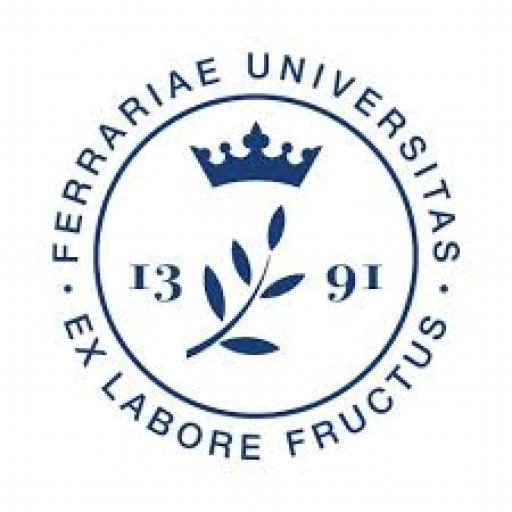Photos of university / #universityofkansas
The Bachelor of Science in Civil Engineering at the University of Kansas prepares students to become innovative and skilled professionals capable of addressing complex infrastructure challenges. This comprehensive program combines rigorous coursework, hands-on laboratory experiences, and real-world project opportunities to develop a strong foundation in engineering principles, design, analysis, and management. Students will study core subjects such as structural analysis, fluid mechanics, geotechnical engineering, transportation systems, environmental engineering, and construction management. The curriculum emphasizes critical thinking, problem-solving, and effective communication skills essential for leadership roles in the civil engineering industry.
Throughout the program, students have access to state-of-the-art laboratories and facilities that enhance practical learning and experimentation. The university fosters a collaborative environment where students can engage in research projects, internships, and cooperative education experiences that connect classroom learning with industry practices. Faculty members, recognized experts in their fields, mentor students and support their development as innovative engineers ready to contribute to sustainable infrastructure development.
The Civil Engineering program also emphasizes ethical responsibilities, sustainability, and the societal impact of engineering solutions, preparing students to serve diverse communities and adapt to evolving technological advancements. Graduates of the program are equipped to pursue licensure as Professional Engineers (PE) and are prepared for careers in consulting engineering firms, construction companies, government agencies, and research institutions. With a strong commitment to academic excellence and experiential learning, the Civil Engineering degree from the University of Kansas aims to produce competent, responsible engineers who will shape the future of infrastructure and environmental sustainability.
Courses that address the behavior and design of steel and reinforced concrete structures, environmental pollution, control systems, water resources systems, foundations, and surface transportation systems are integrated into the curriculum, culminating in a series of senior-level professional design courses. These simulate the design processes used in the major areas of civil engineering and prepare students for entry-level positions. Most faculty members are licensed professional engineers. KU graduates have successful records in professional practice, research in academic institutions, government and private laboratories, and in managing firms and corporations of all sizes.
Students take required courses and select electives that best fulfill their personal goals from the following general areas of study. A total of 132 credit hours is required for graduation.
Undergraduate Concentrations
Students may identify broad concentrations in either general civil engineering or environmental engineering. Within these, students may choose elective courses to permit additional exposure to selected areas of civil or environmental engineering such as transportation, structural, geotechnical, environmental, and water resources engineering. In environmental engineering, electives may be selected to focus on water quality and treatment, bioremediation, solid and hazardous wastes, air quality, and air pollution control.
Freshmen must:
1. Provide evidence of high school graduation with a curriculum that would prepare you for university studies in your home country
Credentials and Requirements by Country for Freshman Addition to the College of LIberal Arts and Sciences
2. Have a GPA of 2.5 on a 4.0 scale;
3. Submit English proficiency test scores (used to estimate students' placement in appropriate level of ESL course, as needed. All international students are screened after arrival on campus and prior to enrollment by the KU Applied English Center).
The University of Kansas will accept both the new SAT and the old SAT. We will use concordance tables to compare your scores and determine your highest scores on either the new SAT or the old SAT. At this time, any SAT scores listed are based on the new SAT (after March 2016).
In addition to transcripts or marksheets, you must present an official diploma or graduation certificate, official examination results, or other proof of graduation particular to your country. We use equivalent admission criteria for applicants from all countries. Meeting the minimum grade point average does not guarantee admission.
The KU School of Engineering and its departments each year award additional scholarships to entering freshmen, transfer students and continuing undergraduate students. This is on top of offers from the university. Much of that support is made possible through generous donations from successful alumni and friends of the school who want to ensure others have access to the same great opportunities they had here. All students are strongly encouraged to fill out the FAFSA (Free Application for Federal Student Aid) by March 1 to ensure they are considered for all scholarship dollars for which they are eligible.
The Bachelor of Science in Civil Engineering at the University of Kansas is a comprehensive program designed to prepare students for leadership roles in the civil engineering field. The curriculum covers fundamental areas such as structural analysis, geotechnical engineering, transportation engineering, environmental engineering, and construction management. Students gain both theoretical knowledge and practical skills through a combination of classroom instruction, laboratory work, and hands-on projects. The program emphasizes the importance of sustainable design, safety standards, and innovative problem-solving techniques to meet the challenges of modern infrastructure development.
Students have access to state-of-the-art laboratories and resources that support experimental learning and research activities. The program also offers opportunities for internships and cooperative education experiences, enabling students to apply their classroom knowledge in real-world settings and develop professional connections. Faculty members are active researchers involved in projects related to infrastructure resilience, environmental impact analysis, and construction technology, providing students with mentorship and exposure to current industry trends.
Graduates of the Civil Engineering program are equipped with the technical expertise, analytical skills, and ethical foundations necessary to pursue licensure as professional engineers. They are prepared for careers in consulting firms, government agencies, construction companies, and private industry. The curriculum is regularly updated to reflect the evolving demands of the civil engineering profession, ensuring students are well-prepared for successful careers and graduate studies.
The program also encourages student involvement in professional organizations such as the American Society of Civil Engineers (ASCE), which offers networking opportunities, leadership development, and additional industry insights. With a strong commitment to research, community service, and industry partnership, the Civil Engineering degree at the University of Kansas aims to produce graduates who are innovative, responsible, and dedicated to improving society through engineering solutions.










